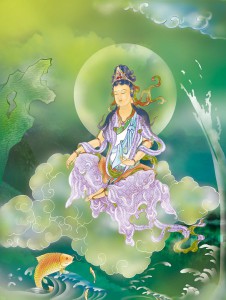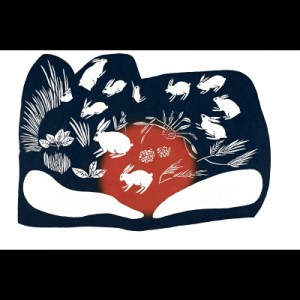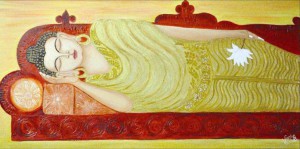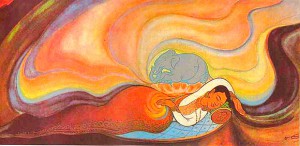As long as you consider yourself a body mind event, your house and bank account will haunt you both in your waking and dream state.
The illusion appears as real.
It is only upon the realization of the Self that the roller coaster ride comes to a real end.Özgür: The Self means witnessing awareness?
Magdi: the Self refers to the one and only reality.
I define the Self, as my teacher defines it: Whatever it is that truly hears those words, whatever it is that truly perceives this perception.Özgür: Is it an entity?
Ted Thompson: The self is not an entity. It is absolute reality.
Magdi: The entity-impression occurs when the Self identifies with a limited personal body mind.
Upon this identification, the Self experiences itself as a limited entity, as a person, as a limited consciousness. The result of this identification is suffering and fear of annihilation.
It is as if the Self chooses to forget its wholeness and reality and to experience itself as a limited form.What dissolves this impression (of being an entity) and the suffering that goes along with such an identification, is the recognition that the reality of consciousness is universal and not limited. And that the reality of the universe is in fact the one reality of consciousness.
There is only one reality and that is the Self. All else is dream, or at best, the world body mind is real only to the extent of the reality of consciousness and not beyond.
Özgür: Thank you Magdi this helps a lot..
Richard: Magdi, you say: The of Self is ..”Whatever it is that truly perceives this perception “. It seems to me that is ultimately referencing a partial view,a finite view, which can not be representing the nature of the limitless Self. If we posit that Self is infinite and omnipresent then are not ALL perceptions mere speculations ?
Magdi: Perceptions may be dreams and speculations, but whatever it is that dreams the dreams or speculates (perceives) the speculations is what I refer to as consciousness. The dreams may be illusion, but the dreamer is not. There is nothing limited or partial about consciousness. What is perceived is limited. But THAT that truly perceives is boundless, formless and not limited in any way or form.
The images on the screen might be speculation, dream appearances. But awareness is not an appearance or a speculation. The reality of consciousness is absolute.
There is only one reality.Richard: Agreed there is nothing limited or partial about consciousness. However,
“That that truly perceives” is a statement attributing perceivership to the absolute. Are you standing by perceiving, as a function of the absolute ?Magdi: Consciousness/Awareness (perceiving) is one of the attributes of the absolute.
So is Beingness (Amness). So is Love, beauty, Freedom, Intelligence, Peace, happiness. The qualities of the attribute are not worldly and not dependent on the world body mind.In saying the Self is “THAT that truly perceives” I am attributing awareness (perceivership) to the Self, but this does not limit the Self to this ‘function’. After all, the Self is absolute freedom. In ignorance, “Perceivership” is attributed to the mind. In fact, “perceivership” does not belong to the mind since the mind is perceived. “Perceivership” (Awareness/Consciousness) is an attribute of the absolute (that is omniscient and omnipresent).
Richard: In my understanding Consciousness Awareness is quality-free.
Magdi: The experience of consciousness, meaning consciousness knowing itself is Ananda. Bliss.
Peace in the body, Beauty in the world, Love in relationships, Intelligence and clarity in the mind, Humor in spirit. When we speak of quality-free awareness, we refer to awareness being free of phenomenal objective qualities (such as weight, size, density, height, smell, etc.) and free of mind qualities, meaning not subject to thoughts and emotions.Richard: Agreed. Perceivership does not belong to the mind. In my understanding the absolute is free of external references.
Magdi: Yes. As well, the absolute knowing itself is complete freedom and bliss.
Freedom from all forms. Thus not limited by the body mind, nor by anything.
Freedom in the absence or identification of form-impressions.Richard: The description ,directly above, of “the experience of consciousness “seems to me to be a description of the Satvic perception.
Magdi: Purity, wholesomeness, and virtue are qualities of the absolute … they are how happiness and freedom expresses itself.
Richard: The satvic perception is not direct perception, nor is it perception in depth .
Satvic is merely reflection (or thought). I know you like Emerson.“I am the doubter and the doubt ,
and I the hymn the Brahmin sings”KG: The Transcendental Self has no conditional faculties. If one uses qualities to define the Self, it is by definition an error. Does a rock see or hear? Does a worm see or hear? No, yet they are also part of the universe, also not separated from Consciousness Itself. Its not just a minor detail or “quibble”. It is a critical misunderstanding.
Magdi: Richard, The Absolute is complete freedom. Why rule out the Absolute as a perceiver? After all, perception (when it is void of the me-impression) is nothing else but the Self perceiving itSelf in the presence of form as well as formlessly (Beingness).
For example, listening to a Bach violin Concerto or to Mozart Symphony #40, or looking at the birds at the bird feeder, or enjoying a talk with your beloved… Are these not perceptions that YOU (the ultimate perceiver) enjoy? The Absolute is limitless and Consciousness/Awareness is but one of the qualities of the Absolute. The Absolute is not an empty emptiness, but a full emptiness.
Having said all of that… what matters is the experience and not merely the verbal understanding. When it is said that the absolute has no qualifications, what is meant is that the absolute has no phenomenal qualifications.
Peace, Joy, happiness, wisdom, intelligence… are NOT phenomenal qualifications. They are indivisible facets of the Self like the indivisible colors of the rainbow are facets of the (white) light.Magdi: KG, Happiness is not conditional. Nor is peace and freedom.
It is an inherent aspect of the Self. The mind erroneously perceives happiness as being a result of possessions or worldly events. Until you get to the Self, you remain in the conditional. Only the revelation of the Self unveils the unconditional … Only then is the display of the complete freedom, bliss and happiness that is inherent to the Self revealed. A rock, a worm… all is the Self.
The Self is Beingness/Consciousness/Bliss
Sat/Chit/AnandaWithout Ananada, the Sat/Chit are not yet fully reconciled.
An understanding of Sat/Chit is insufficient and incomplete without Ananda.The Self has generously given you (itSelf) Ananda in order to guide you to itSelf. Follow the trail of causeless happiness and universal love.
Jonathan: “To carry yourself forward and experience myriad things is delusion. That myriad things come forth and experience themselves is awakening” (Dogen).
The Absolute does not stand up on its legs and walk, unless it’s you–and then why need the ‘absolute’?Magdi: The absolute experiences itself as no-thing and as all-things. No ‘need’ is needed for the Self to know itSelf as no-thing and (simultaneously) as all-things.
Jonathan: As long as I’ve put both feet in my mouth, might as well put the third one in. The ‘absolute’ is a suggestion, a pointer, and I see little point in defining and conceptualizing it (whatever ‘it’ is) and then coming up with further attributes. As long as one is regarding the absolute as an object ‘out there’, one misses the point.
Relatedly, I think, from Nagarjuna: “Emptiness means relinquishing opinions. Believers in emptiness are incurable”.Magdi: Who/What would assume the absolute to be ‘out there’?
The absolute is a pointer that refers to the illusion of duality. With no other.
The source of all streams
The current that fuels all light bulbs
The light that shines as all seeming moons
The attributes of the absolute are innate. They are overcast by the me-impression. Once the me-impression is fully annihilated, the revelation is not an empty emptiness, but the fullness of peace, freedom, truth and happiness. There is an important point being made. That is: as long as the (non-phenomenal) attributes of the absolute are not revealed, you are still on the path. Follow the love and the light. The heart and not the mind.Richard: What is “absolute ” means having NO qualification, period.
Therefore there are no grounds for your contention that the absolute has non~ phenomenal qualifications (such as peace, joy, happiness, wisdom).
Peace, joy, happiness ,wisdom are qualities attributed by the human mind. Such qualities are attributed in order to identify the unicity consciousness.
You say that “perceivership is an attribute of the absolute”, however, the absolute being omnipresent, cannot have a perception. Can the eye have a perception of itself ? Can the infinite absolute be contained in the finite perception ? Can the greater be defined in the lesser ?Magdi: Why do you say the absolute cannot have a perception? After all, perceiving a sunset or perceiving this screen, even if it may be a dream, does occur, doesn’t it? Even a dream is not nothing. What is it that perceives?
In ignorance, the impression is that perception is done by a limited and personal body mind and that this mind impression is ultimately separate from other mind impressions.
In wisdom, it is realized that all perceptions are universal cosmic events. All interconnected. The interconnection being the unity of consciousness.
In other words, consciousness is the reality of all dreams, of all mind impressions. It is one central station (of sort) that broadcasts all minds. Minds are local events, but the central station is one and is the choreographer of all minds.You also ask: “Can the eye have a perception of itself?”
No. The eyes are an instrument that do not perceive. It is you (consciousness) that perceives using the eyes (as binoculars). You see, although the eyes do not perceive, consciousness does. It perceives itself as it is Self-knowing. It never leaves its Self knowingness. That is the jnani. Although consciousness perceives, it is not limited or affected in any way by its perceptions, like the dreamer is not limited or stained by its dreams.You also ask: “Can the infinite absolute be contained in the finite perception ? Can the greater be defined in the lesser?”
No. Nothing defines or limits the absolute. It would not be the absolute if there were any limitations whatsoever. The dreams do not limit the dreamer. Even when you identify with a dream character, you remain the Self. There is only one reality, whole and indivisible (of course). That is the meaning of ‘know yourself and know God’.
The realization and establishment in the knowingness of the Self. Only the Self can know the Self. Self-relaization refers to this Self-knowingness no longer leaving itSelf.Jonathan: Self, Self, Self–let’s hear it for no-self!
Magdi: No-self (neti neti) is an important initial revelation. The final is: All is the Self. The one and only reality out of which all mind impressions arise and out of which, ultimately, all impressions are made. Complete surrender is one of the paths to Self revelation.
Ted Thompson: The eye is the seer of the world. The mind is the seer of the eye. Awareness is the seer of the mind. In English, the word “self” is tainted by association with the ego. However, when the little imaginary self disappears, what you are, awareness is still there. You are that, boundless, timeless.
The absolute is beyond all concepts. Awareness, beingness, Self are pointers to That which is beyond, prior to and more subtle than words. “No-self” is a good pointer for getting beyond the ego, but beyond the ego, what is there? You as awareness are prior to and more subtle than even time and space, unborn, unchanging, untouched by a thousand dream worlds, untouched by the ravages of time.
Find it out for yourself by diving deep into the source of all thoughts!!!
Self-enquiry means, among other things, do it yourself. No one can discover it for you.Jonathan: “Initial”, “final”, “getting beyond the ego” Why bring time in? Who gets beyond what? How is “All is the self” any different than “no-self”? No-self refers to no-separate-self. If “all is the self” is “final”, then in setting up camp there, aren’t you just holding to an aggrandized version of ‘me’ and, perhaps a glorified ‘realizer’?
Ted Thompson: What is directly experienced is Pure Awareness/Pure Being. The only glory of the realizer lies in selfless service, love and compassion. One cannot “set up camp there.” Beingness is already there. There is no separate self to set up camp there.
Beyond or prior to, refer to the Abolute being more subtle than any appearances in awareness. Being more subtle than time, Awareness is always present, before time, after time, instead of the illusion of time. Being dimensionless, unthinkable and unimaginable, Awareness occupies no space, has no location in space. It is beyond, prior to and exists instead of any illusions.
Awareness exists before the beginning of time and after the end of time since time has no real existence.
The value of realization has nothing to do with words or making an impression on non-existent others. Its value is the discovery of the True self as changless, immortal, ever-present, free and real. It is free of all illusions. Its essence is uncaused happiness, the joy of being, freedom, bliss.Magdi: When you learn to walk, you first learn to crawl. When you learn to play the flute, first you learn your arpeggio.
Oftentimes, in the contemplation of the Self, there is an insight that reveals that you are not the ego. The ego-identification is cracked like Humpty Dumpty’s egg. But the ego is not completely slain.
Further contemplation dissolves the remaining vasanas at the body/feeling level and the Self is no longer wavering. There are no camps when it comes to the absolute. it is seamless presence.Ted Thompson: Awareness is the ultimate perceiver, and the essence of perceiving. Awareness pervades the mind and sense organs. Awareness plus thoughts equals mind. Awareness plus perceptions equals senses.
Magdi: Indeed, no-self means no-separate-self. That is an important insight. Although this insight mortally wounds the ego, it rarely slays it.
Jonathan: Magdi, I don’t know that no-self is insight so much as a pointer to ‘reality’ or, say, a best-words-can-do description of what insight reveals.
Magdi: Theoretically you are right.
Experientially, it is a different matter. Experientially, ‘no-self’ is a revelation. Insight reveals no-self. Experientially. It reveals the illusion of the me character.
Like the word moon, points to an experience of the moon.
Beyond that is the revelation of the one universal reality… that of consciousness, awareness referred to as Self.Ted Thompson: Nothing ever happens separate from Awareness, which is pointed to with the word Self, since Awareness is what you are.
Richard: Magdi Badawy when I say that the Absolute ,the SELF , is ruled out as a perceiver, I mean ,(naturally enough ), that the absolute is ruled out as a perceiver of reality, i.e. ITSELF . (if something were to be a perceiver of unreality then that would be a contradiction in terms). The perception of unreality …..is in fact Maya, the play. And the game is a never~ending story.
Hence I say that, perceivership can not be an attribute of the absolute,….
For the same reason that the eye can not have a true perception of itself.
Again the absolute cannot truely perceive itself for the same reason that the infinite perception cannot be contained in the finite perception.Magdi: What matters is to know yourself and to be established in that knowingness.
Whichever way one would choose to word it, is secondary to the Self-knowingness. Ignorance is the seeming forgetfulness of the Self in the identification with the body mind (mental/sensual) form. Wisdom is the knowingness (recollection) of yourself. The ‘absolute knowing itSelf’ is a verbiage that refers to this Self knowingness (recollection). It is like waking up from a night dream where you were dreaming you are a butterfly.Richard: Magdi, if people talk to one another on Facebook and expect agreement then using the same definitions is essential.
ASPECT, ATTRIBUTE.
I suggest these two terms to help clarify any discussion of the SELF ABSOLUTE , (…..especially the discussion of how the absolute could have no qualifications), ….
for example the beauty, wisdom, joy” often ATTRIBUTED to the absolute is not valid ….Because an attribute is a quality, (and the absolute has no qualities).
Attributes are the marks by which a thing may be identified, (and although the absolute contains identities apparently, yet the the absolute is not identifiable.
An ASPECT,on the other hand is a “characteristic appearance or expression” eg “Truth, love, life “are examples of synonomous terms often used to describe ASPECTS of the absolute Self ,or BrahmanMagdi: Thanks for the distinction you made between aspect and attribute.
So, I guess I was using the term attribute instead of aspect… Oops.. Language, especially when it is not your native language, can at times be challenging.
I will keep that distinction in mind.Magdi: Concerning someone else’s question about experience, yes, experience does depend on a mechanism. This applies to all phenomenal experiences.
There is one experience that differs. That is the experience of consicousness. It is a non-phenomenal experience. The experience of consciousness is a direct experience that does not depend on any mechanism. It is the revelation of the reality and universality of consciousness: Consciousness knowing itself (as the one and only reality).
There is an initial knowing (enlightenment) that is usually hijacked by the mind … and becomes a memory and a desire.
Further along, this knowingness gets established (realization) and no longer leaves itself.
The supremacy of consciousness gets experientially established as ones dominant experience; as the reality of everything.It can be explained in words, but what I am talking about here (consciousness knowing itself) is a revelation, a re-cognition that requires the complete dissolution of the me-separate-self-impression. It is beyond words.
~~~
On another note, there are aspects to the experience of consciousness. These aspects are happiness, love, freedom, beauty and truth.
The Ananada part of the Sat/Chit/Ananda
